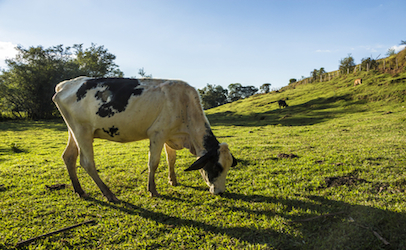 the U.S. reaching stratospheric levels, looking to one of our top-10 trading partners for increased supply would seem to be in the best interest of hard-pressed American consumers.
the U.S. reaching stratospheric levels, looking to one of our top-10 trading partners for increased supply would seem to be in the best interest of hard-pressed American consumers.But the Denver-based National Cattlemen’s Beef Association says that action by USDA’s Animal and Plant Health Inspection Service opening the U.S. to importation of fresh and frozen beef from 14 Brazilian states is putting those consumers at risk. And, because of a separate audit, USDA won’t be certifying any new establishments as eligible to export to the U.S. The conflicting decisions have left a lingering controversy in their wake.
“We are more convinced than ever, after reading this report, that Brazil is not capable of holding its industry to the same standards we hold ourselves to,” says Victoria, TX, cattleman Bob McCan, NCBA president.
McCan was referring to the final audit report dated April 16, 2014, from USDA’s Food Safety and Inspection Service (FSIS) on the Feb. 19-March 14, 2013, onsite review of Brazil’s inspection system. The cattlemen’s group is critical of FSIS for not providing more timely access to the report on Brazil’s inspection system.
Onsite reviews are conducted to determine if a foreign country’s meat inspection system is equivalent to USDA’s. Importing nations must meet or exceed requirements imposed in the U.S. by FSIS meat inspectors.
An onsite review like the one conducted last year in Brazil focuses on six main system components: government oversight, statutory authority and food safety regulations, sanitation, Hazard Analysis and Critical Control Points (HACCP) systems, chemical residue control programs, and microbiological testing programs.
NCBA’s chief veterinarian, Dr. Kathy Simmons, says the cattlemen’s association has “significant concerns with Brazil’s ability and willingness to meet established compliance requirements.”
“Most alarming to me is the inconsistent application and implementation of Specified Risk Material (SRM) requirements throughout the system and a history of unresolved drug residue violations,” Simmons says.
SRMs, including such parts as the brain, skull, spinal cord and eyes, are prohibited from entering the human food chain because of their potential as bovine spongiform encephalopathy (BSE) agents. BSE is the prion disorder also known as “Mad Cow” disease.
Brazil’s meat inspectors do not have a uniform definition for SRMs in cattle consistent with FSIS requirements. The audit found that would result in inconsistent implementation of SRM regulations.
It may be a timely point now that Brazil has discovered its second cow believed to have been suffering from atypical BSE.
The audit also found shortcomings in HACCP practices, sanitation enforcement, and the prevention of cross-contamination in one establishment of cow carcasses. It concludes by saying that, “until Brazil has satisfactorily addressed these issues, FSIS will not certify any new establishments as eligible to export to the United States.”
McCan says the cattlemen support free and open trade, but that requires both sides to “uphold certain standards.”
“If Brazil cannot manage their food safety equivalency standards, how can we trust that they have the safeguards to protect animal health?” McCan asks. “Therefore, we continue to urge APHIS to withdraw this proposed rule.”
Overall, FSIS found Brazil’s inspection system to be “adequate” for maintaining equivalence to its own. FSIS has three levels of performance for foreign inspection systems: adequate, average, and well-performing. FSIS has asked Brazil to respond within 60 days with plans to address concerns raised by the audit. Until the matter is resolved, it means no additional establishments in the country will be allowed to export to the U.S.







